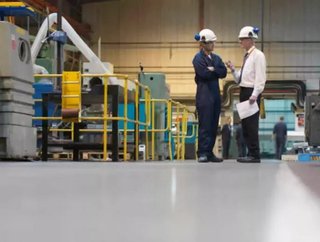Keeping the Oil and Gas Industry Connected

Being on location in a remote region of the world 20 years ago in the oil, gas, and mining industries for laborers meant fighting extreme elements as you work and then fighting the boredom after your shift ended.
“I've been in remote locations and life while you’re on duty is hard, when your shift finishes, you start wondering, ‘I'm in the middle of nowhere, what do I do now?’” says Martin Denari, director in charge of Global Oil, Gas, and Mining for Orange Business Systems. “You read a book, magazine, or you jump into a car and drive 100 miles to the closet place that resembles a town.”
Now, employees not only expect to be connected wherever they working – from Canga East in Guinea to Almaty in Kazakhstan – they demand it. And Orange Business Services has the global footprint to provide it. But it’s not just the ability to post photos of the local exotic meals to Instagram or update a status on Facebook, keeping remote locations connected saves oil, gas, and mining companies huge amounts of money, time, and potentially, lives.
Real Time Interactions
The demand for crude oil and natural gas never ends and neither does the industry’s search for more sources. Global exploration and production spending reached more than $600 billion in 2012, an increase of 10 percent from 2011.
The rise in spending is due to the oil and gas industry investing in emerging markets such as Latin America, Africa, and Russia, which are some of the harshest and most remote places on earth. Being isolated in these places could negatively affect productivity, which is why state-of-the-art communications are essential for on-site efficiency and logistics.
Orange has the ability to connect remote sites with broadband satellite, microwave and cellular networks, making these outlying sites feel a lot less isolated. Now, remote sites may have similar technologies as branch offices with the latest unified communications, tools like instant messaging, email, voice over internet protocol (VoIP) calling, and video conferencing.
The oil and gas industry relies heavily on scientific experts, including geologists and petro-physicists, to provide advice on crucial matters such as drilling direction and oil well analysis. With the live video feed, experts at a central location can make quick and informed decisions about the remote site, which keeps productivity up.
“Its costs $60,000 to $70,000 a day to operate a drilling rig, therefore it is essential to make the right decisions quickly,” Denari says. “Real time video collaboration provides quick access to skills and second opinions, wherever experts are located.”
In addition, communications can help with plant safety. Accidents in the oil and gas industry can have an enormous environmental, reputational, and financial impact on a company. Proper training of employees delivered online on the latest standard operating procedures may prevent mistakes. Communications technology also allows onsite staff to call on extra help from offsite experts to ensure difficult situations are handled correctly.
Global Footprint
Orange’s presence in emerging markets, such as the Middle East, has been growing and they recently signed a new network infrastructure agreement with Aramco Services Co., the U.S.-based subsidiary of Saudi Aramco, the state-owned oil company of the Kingdom of Saudi Arabia. Orange will provide information technology network services to connect sites in different regions.
Just as oil and gas is constantly exploring for more product, mining companies are also often in far-flung locations such as in Africa and Asia-Pacific. But, irrespective of location, mining companies need their facilities connected to the network to ensure safety and efficiency and to minimize disruptions.
Rio Tinto, a multinational mining company, uses Orange Business Services for satellite connections in isolated locations in Guinea, Mongolia, and Kazakhstan. Using VSAT improved Rio Tinto’s flexibility and agility to support its global business and increase operational cost savings.
“We look forward to working with them to support our growth program, especially in developing nations where we will leverage Orange’s far reaching network capabilities,” says Scott Singer, head of Global Business Services for Rio Tinto.
Orange is also helping mining companies improve network connectivity within mines. Until recently, the leaky feeder solution – a cable that sends radio signals through small gaps in copper sheath – was the preferred method.
In the wake of mine collapses, the company has introduced new technology that allows of an ELF (Ethernet over leaky feeder) system to work from anywhere within the underground environment. It supports technologies such as IP cameras and VoIP phone that run off the wide-area network.
Employee Well Being
Another function of staying connected to remote sites is the advent of telemedicine. Employees will get sick and may get injured on a remote location. Even though there is a physician on site, there might be an injury or illness where a specialist is needed. Video collaboration with a consulting physician could help with the diagnosis and provide extra support.
Being connected also helps attract and retain employees in the oil and gas industry, where there is a bit of a shortage of experience workers. According to a study by Ernst and Young, just in India alone, the oil and gas industry is expected to require an additional 25,000 workers over the next five years. Workers are retiring and not being replaced.
“There are various reasons why people do not want to work in the oil and gas industry,” Denari says. “Being connected to the world is expected by all employees and it’s very important to provide this connectivity to people even in remote locations. Connectivity is part of our well being, part of our standard of life.”
By using Orange’s information communications technology workers are connected to family, friends, and entertainment so they can enjoy their free time. Employees can play online games, surf the internet, and watch the latest movies, which improves morale in the workplace.
“I call it employee well being,” Denari says. “People have a need to be connected.”






